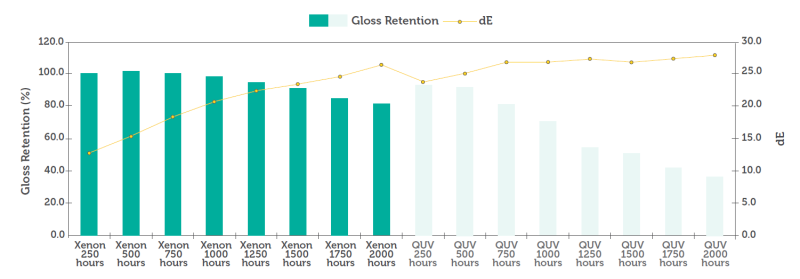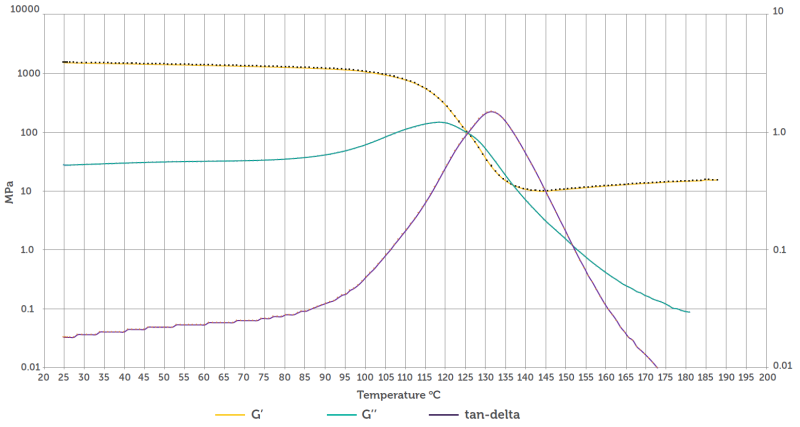Knowde Enhanced TDS
Identification & Functionality
- Chemical Family
- Polymer Name
- Composite Materials Functions
- Technologies
- Product Families
Features & Benefits
- Materials Features
- Features and Benefits
- Excellent mechanical performance and durability using only moderate temperature post-curing cycles
- High temperature performance - HDT 109°C/ 228ºC and Tg 112°C/ 234ºC
- Compatible with carbon fiber reinforcement materials and general purpose sizing agents
- Ability to vary cycle time eliminates the need to stock different resin grades
- Standard 30 minute gel time but also available in 60 and 90 minute gel time
Applications & Uses
- Markets
- Compatible Reinforcements
- Composites Processing Methods
- Formulation Guidelines
- Crestapol 1260 should be allowed to attain workshop temperature before use. For curing at room temperature Crestapol 1260 requires the addition of a catalyst and an accelerator.
- N.B. Catalysts and accelerators should not be mixed directly together, since they react with explosive violence.
- The recommended catalyst for curing at room temperature is Trigonox 239, which should be added at 2% into the resin and thoroughly dispersed. The recommended accelerator is 1% solution of cobalt in styrene, which should be added at 2% into the resin and thoroughly dispersed.
Properties
- Color
- Appearance
- Clear yellowish brown resin
- Typical Cast Resin Properties - Base Resin
- Uncured Properties
- Note
- * at 20°C 2% of 1% solution cobalt in styrene, 2% Trigonox 239.
- ** Curing schedule - 24 hours at 20°C, 5 hours at 80°C
- *** CTE as measured by TMA, ASTM E 831
- Water Absorption Data
Avg Gain/ mg Avg Gain/ % 24 hours 6.5 0.08 1 week 17.1 0.20 4 weeks 20.8 0.24 BS EN ISO 62:1999. 50x50x3mm sample size. Water bath 23°C/ 73°F Cast resin, cure: 2% of 1% solution cobalt in styrene, + 2%LPT-IN Post Cure: 16 hours at 40°C (Lloyd’s).
| Value | Units | Test Method / Conditions | |
| Barcol Hardness | 55 | — | — |
| Heat Deflection Temperature | 109 | °C | — |
| Tensile Strength** | 76 | MPa | — |
| Tensile Modulus** | 3.6 | GPa | — |
| Elongation (at Break)** | 2.7 | % | — |
| CTE - Alpha 1*** | 65 | ppm (°C)-1 | — |
| CTE - Alpha 2*** | 200 | ppm (°C)-1 | — |
| Tg - TMA (Onset) | 100 | °C | — |
| Tg - TMA | 110 | °C | — |
| Tg - TMA (Exit) | 125 | °C | — |
| Value | Units | Test Method / Conditions | |
| Density (at 25°C) | 1.038 - 1.042 | g/cm³ | — |
| Viscosity (at 25°C, 4500 s⁻¹) | 2.25 | Poise | — |
| Stability in the Dark (at 20°C) | 12 | months | — |
| Working Time** | 12 - 15 | minutes | — |
Technical Details & Test Data
- UV Weathering Data

Panel Description
Laminate lay up as follows:
- 9” x 9” square
- 2 x glass tissue on tool side
- 2 x 450gsm powder pound CSM
- Peel ply and infusion flow media on bag side only
- Post Curing
Satisfactory laminates for many applications can be made using Crestapol 1260 by curing at workshop temperature. However, in common with all thermosetting polymers, optimum performance can only be achieved with a high temperature post cure.
- Abrasion Data
- Accelerated wear testing was performed by doing a Taber Abrasion test to ASTMD4060. After 4000 abrasion cycles, Crestapol 1260 lost 190mg.
- Impact Resistance Data
ASTM D 4226 Standard Test Method for Impact Resistance of rigid Poly Vinyl Chloride building products was conducted by Professional Engineering Inc. to determine what affect impact at extreme temperatures would have on the composite material. Tests to be conducted at -54°C/-65°F, ambient, and 71°C/160°F, on thirty samples at each temperature. All samples were conditioned for at least 24 hours then immediately tested to maintain the temperature of the test specimen. An 8.4lb weight was dropped from various heights to determine if the fibers broke in the composite material. For purposes of customer testing, the failure criteria would be no permanent deformation or breakage of the skin material. There was no permanent deformation or breakage observed.
Temperature Failure Height Damage Observed -54°C/ -65°F 32cm - 38cm Broken fibers Ambient 28cm - 34cm Broken fibers 71°C/ 160°F 28cm - 32cm Broken fibers Temperature effects on modulus - tg onset g’ 109°C/ 227°F

Packaging & Availability
- Packaging Type
- Packaging Information
Crestapol 1260 is supplied in 25kg/6.6 gallon, 200kg/53 gallon and 1000kg/264 gallon pack sizes.
Storage & Handling
- Storage Conditions
Crestapol 1260 should be stored at 25°C in the original, unopened container in a dry, well ventilated place. Protect from freezing and direct sunlight. Avoid contact with oxidizing agents.